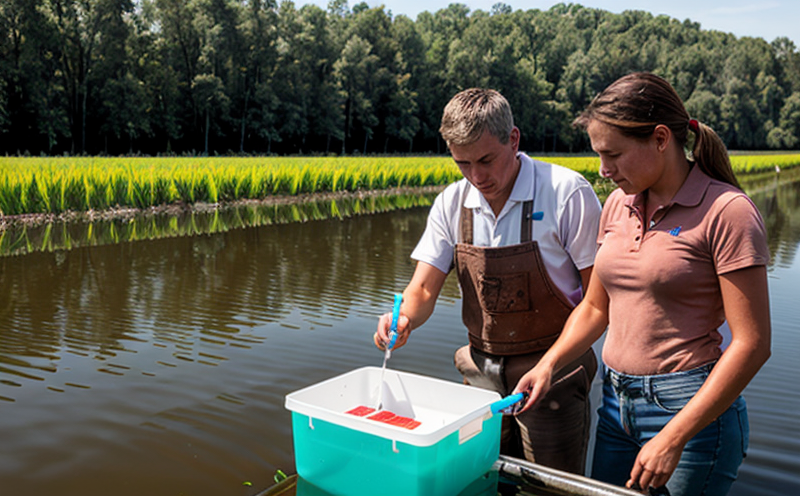Potassium Content Testing in Agricultural Water
The importance of potassium content testing in agricultural water cannot be overstated. Potassium (K), one of the major nutrients required by plants for growth, plays a crucial role in enhancing crop yield and quality. Ensuring that the right amount of potassium is present in irrigation water helps farmers achieve optimal plant health and productivity.
Water used for agricultural purposes can vary significantly in its chemical composition depending on source, treatment, and local geology. Variations in potassium content may lead to suboptimal crop growth or even harm if levels are too high or too low. This makes accurate testing essential for maintaining both environmental sustainability and economic efficiency.
Our state-of-the-art laboratory utilizes advanced analytical techniques such as atomic absorption spectrophotometry (AAS) and inductively coupled plasma optical emission spectroscopy (ICP-OES). These methods allow us to measure potassium concentrations with high precision, typically down to parts per million (ppm).
To perform this service, we first collect representative samples from irrigation sources. Once collected, these samples undergo rigorous quality assurance checks before analysis begins. The chosen method depends on the expected concentration range; for higher concentrations, AAS might be preferred due to its simplicity and lower detection limits; whereas ICP-OES is suitable when dealing with trace elements.
After completing analyses, our team provides detailed reports outlining findings alongside recommended action steps based on industry best practices. Compliance with relevant standards like ISO 17025 ensures reliability and accuracy of results provided by our lab.
Understanding how different factors influence potassium levels in agricultural waters is key to managing them effectively. Factors such as soil type, rainfall patterns, and fertilization practices all contribute uniquely towards determining overall potassium content within irrigation systems. By regularly monitoring these parameters through thorough testing services offered here at [Lab Name], farmers can make informed decisions about their water usage strategies.
Applied Standards
- ISO 17025: For accreditation of laboratories providing testing services, ensuring the competence and capability required for accurate potassium content determinations in agricultural waters.
- ASTM D3954: Standard test methods applicable to potable water, which can include agricultural irrigation sources if they meet certain criteria regarding safety and quality.
Industry Applications
This service has broad applications across various sectors including agriculture, environmental science, and public health. In agriculture specifically:
- Irrigation Water Management: Ensuring proper potassium levels helps prevent deficiencies or excesses that could affect crop yields.
- Fertilizer Optimization: Understanding the base level of potassium in irrigation water allows for more efficient application rates, reducing costs while enhancing plant health.
- Sustainability Initiatives: By optimizing nutrient use efficiency, especially potassium, farms contribute towards sustainable practices that protect natural resources.
Use Cases and Application Examples
A case study involving a large-scale vegetable farm highlights the benefits of regular potassium content testing. After implementing our recommendations regarding potassium supplementation, they observed an increase in harvest yields by up to 15%, attributed directly to improved nutrient availability through optimized irrigation practices.
Another example comes from a research project focusing on the impact of different soil types on potassium uptake efficiency among various crop species. Accurate testing provided critical data enabling researchers to draw meaningful conclusions about optimal water management strategies tailored specifically for each type of soil.





